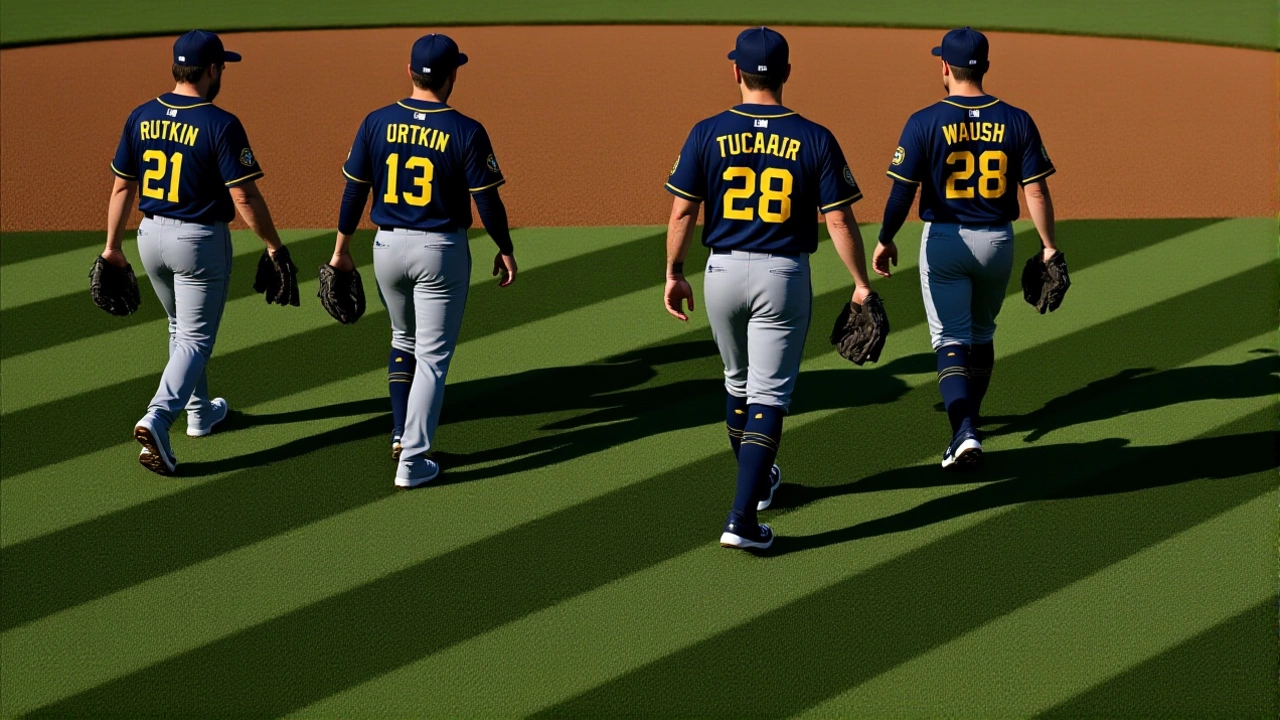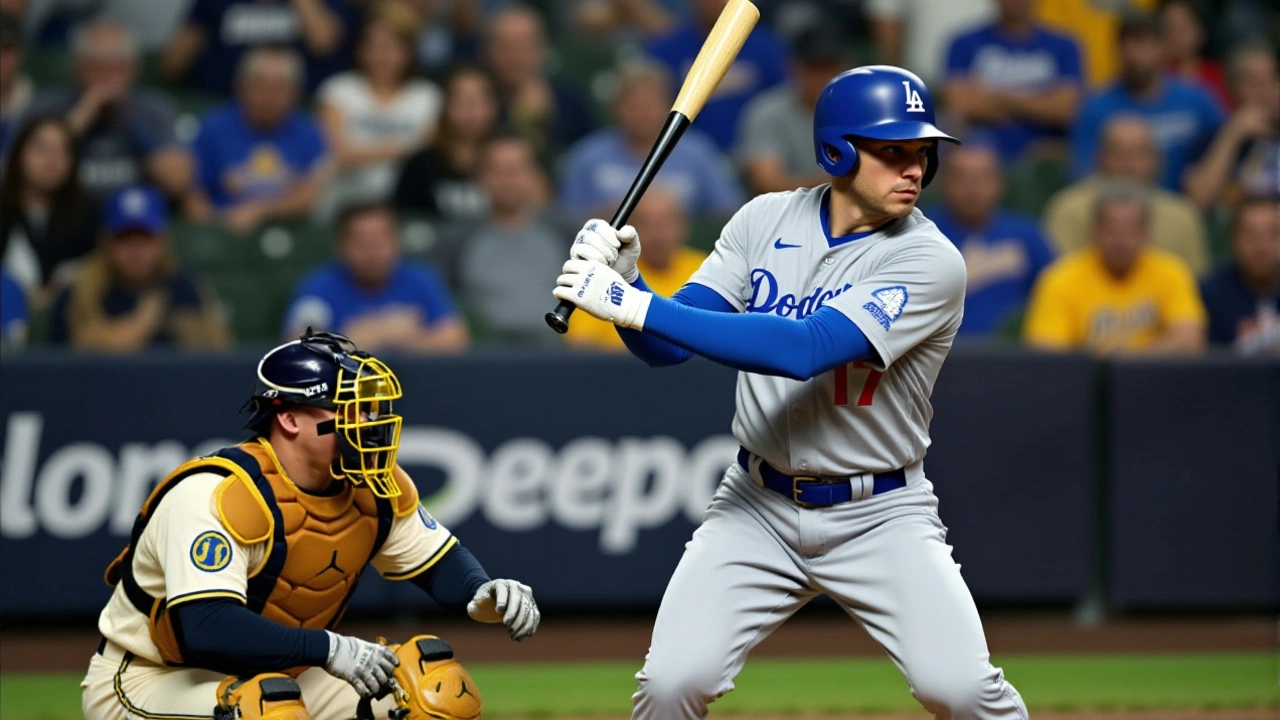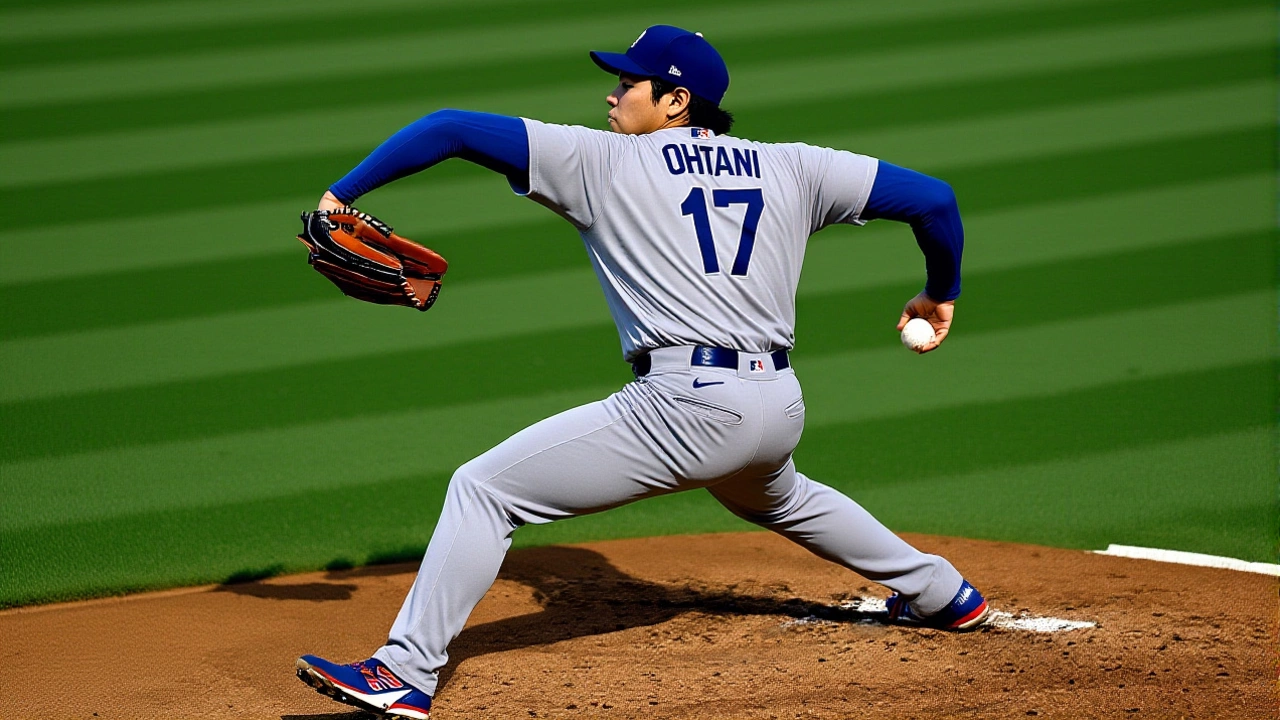When Shohei Ohtani, pitcher and designated hitter of Los Angeles Dodgers turned on the lights at Dodger Stadium on Friday, October 17, 2025, the baseball world collectively gasped. Ohtani’s three home runs – a 469‑foot monster, a 340‑foot cruiser and a 533‑foot rocket – lit up the night sky and helped the Dodgers clinch a 5‑1 win over the Milwaukee Brewers in Game 4 of the NLCS.
Why This Game Was Different
First, the context: the Dodgers had already taken a 3‑0 lead in the best‑of‑seven series, but a final‑game sweep felt like a statement. The Brewers entered the postseason with a surprisingly potent offense – they ranked 22nd in home runs during the regular season but were third in runs scored league‑wide. Yet against Los Angeles, they managed just four runs in four games, a total that would have left most teams stunned.
The twist? Ohtani not only dominated with the bat; he also pitched six innings of scoreless baseball, striking out ten batters and surrendering just two hits. He became the 12th player ever to hit three homers in a playoff game, and the first pitcher to open a playoff game with a leadoff homer – a feat he achieved against starting pitcher José Quintana in the first inning.
Play‑by‑Play Highlights
- 1st inning: Ohtani’s leadoff blast cleared the left‑field pavilion, instantly putting the Brewers on the back foot.
- 2nd inning: Milwaukee managed a solitary hit by Jackson Churio, but Mookie Betts threw down a razor‑sharp throw that left Churio stranded at third.
- 4th inning: After a quick two‑out rally, Ohtani launched a 469‑foot homer that sent the crowd into a frenzy.
- 7th inning: The Dodgers’ bullpen, now helmed by Dave Roberts, kept the Brewers off balance, with rookie reliever Anthony Bonda striking out Bryce Terang.
- 8th inning: The Brewers’ lone run came when Churio stole third, and Terang’s ground‑out turned into a fielder’s choice RBI.
- 9th inning: Caleb Durbin popped a high fly to right‑field; Mookie Betts came down with the grab for the final out.
Quotes from the Dugout
“I’ve never felt a game the way I did tonight,” Ohtani said in the post‑game interview, his voice still echoing in the emptying stadium. “Every pitch, every swing – it just clicked.”
Brewers outfielder Brice Turang was candid: “We couldn’t really get anything clicking. The Dodgers were just too good at every angle.”
Dodgers manager Dave Roberts praised his star: “Shohei gave us a gift we’ll never forget. He’s a once‑in‑a‑generation talent.”

Reactions from the Front Office
Owner Mark Walter called the performance “a defining moment for this franchise.” He added that the Dodgers are now poised to become the first repeat World Series champions since the Yankees’ three‑peat that ended in 2000.
President of Baseball Operations Andrew Friedman noted the broader significance: “The way Shohei controlled both sides of the ball shows why we built this team around versatility. It’s a blueprint for future championships.”
What This Means for the World Series
The Dodgers will face either the New York Yankees or the Cleveland Guardians in the Fall Classic, slated to open on Tuesday, October 21, 2025. If Los Angeles repeats, they’ll be the first franchise in 25 years to secure back‑to‑back titles.
Analysts are already debating how much Ohtani’s dual threat will shape Game 1. Some predict the Yankees will attempt to neutralize him with a bullpen stacked with left‑handed relievers, while others think the Guardians might try a small‑ball approach to avoid his power.

Historical Perspective
Before Ohtani, only eleven players had ever belted three homers in a postseason game, a list that includes legends like Reggie Jackson and Albert Pujols. Ohtani’s added milestone – the first pitcher ever to lead off a playoff game with a home run – rewrites the record books. The feat also underscores the evolution of the “two‑way” player, a role once considered a novelty.
Dodger history is littered with iconic moments: Kirk Gibson’s 1988 walk‑off, Clayton Kershaw’s 2014 postseason dominance. Ohtani’s night now sits alongside those memories, a modern‑era highlight that will be replayed on highlight reels for decades.
Looking Ahead: What to Expect Next
In the short term, the Dodgers will enjoy a brief recharge before the World Series, but the schedule is tight – just four days between the NLCS finale and Game 1. The team’s medical staff says Ohtani’s arm is “in great shape,” yet they’ll likely manage his workload carefully.
Meanwhile, the Brewers will head back to Milwaukee to regroup. Their front office hinted at possible roster tweaks, including a closer look at the left‑handed depth they lacked against Los Angeles’ power swing.
Frequently Asked Questions
How does Ohtani's performance affect the Dodgers' World Series odds?
Betting analysts shifted the Dodgers from a 35% to a roughly 48% chance of winning the World Series after Ohtani’s three‑homer, ten‑strikeout night. His two‑way ability forces opponents to allocate resources both on the mound and at the plate, widening the margin of victory in most scenarios.
What records did Ohtani break in Game 4?
He became the 12th player to hit three home runs in a postseason game and the first pitcher ever to start a playoff game with a leadoff homer. His combined homer distance of 1,342 feet also sets a new NLCS single‑game distance record.
Why were the Brewers shut down after such a strong regular season?
The Dodgers' pitching staff, led by Ohtani, limited the Brewers to just two hits through six innings. Additionally, Milwaukee’s key hitters – notably Christian Yelich and Brice Turang – went 0‑for‑8 with runners in scoring position across the series, underscoring a collapse in clutch situations.
Who will the Dodgers face in the World Series?
The NLCS winner meets the American League champion, which will be decided in the ALCS later this week. The matchup will be either the New York Yankees or the Cleveland Guardians, depending on who wins the ALCS on October 20, 2025.
What does this sweep mean for the Dodgers' legacy?
Sweeping the Brewers caps a dominant NLCS run and puts Los Angeles within striking distance of becoming the first repeat champion since the 1998‑2000 Yankees. It also cements Ohtani’s status as a generational talent, likely earning him a spot in future Hall‑of‑Fame discussions.
